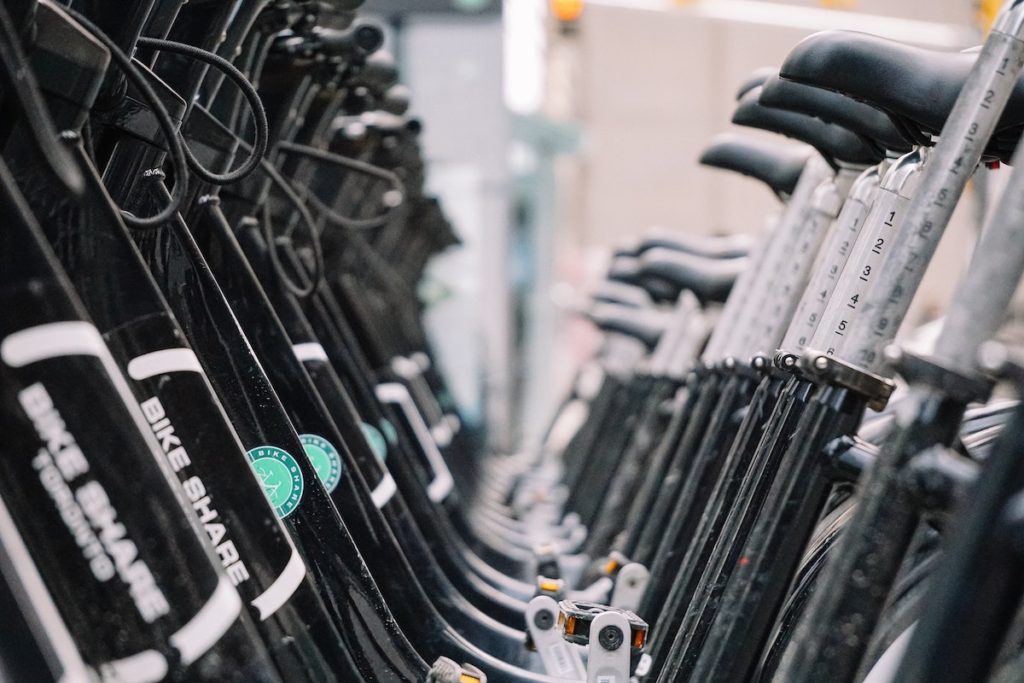The sharing economy offers accessibility to products and services without the burden of ownership. Important as consumers redefine their values and priorities when it comes to how they shop.
In addition, the need to transition our current “make-use-dispose” linear economy to a circular economy has us rethinking how we do business and define ownership. The circular economy minimizes waste and maximizes resources to keep products and materials in use for as long as possible. Sharing products among users to keep them in use offers a solution within the circular economic model.
WHAT IS THE SHARING ECONOMY?
The idea of a sharing economy has been around for decades. However, it has gained interest more recently with the increased awareness of our need to reduce the depletion of natural resources and our carbon footprint.
Sharing our products and buying services may seem like a weird concept. The truth is, you’ve likely participated in the sharing economy without even knowing. Accommodation sharing platforms like Airbnb, ride-share programs like Uber, or product share libraries fall under the sharing economy umbrella.
The sharing economy will require a shift to a service-based economy where consumers will become product users. A consumer is a purchaser who buys a product and then disposes of it when they no longer need the product. When consumers switch to users, the retailer retains ownership of the product and leases the product to the consumer for a set amount of time. In this case, the retailer would offer maintenance and repair services.

BENEFITS OF THE SHARING ECONOMY
Reducing the number of products we need to manufacture and distribute by keeping products in use for as long as possible has big environmental, social, and economic benefits.
AFFORDABILITY AND ACCESSIBILITY
The upfront investment that comes with buying high-ticket or sustainable products is removed in the sharing economy. Removing the total cost of ownership barrier makes products accessible to more demographics.
Transitioning to the sharing economy will require a shift in mindset. Defining status by the number of possessions one has will be a thing of the past. Instead, status or wealth are measured in terms of community development and prosperity.
BUILDS COMMUNITY AND OFFERS ENTREPRENEURSHIP OPPORTUNITIES
The sharing economy opens up new opportunities for people to start their own side hustle or businesses. Do you have products only used once or twice a year? Are you a handyperson who loves to tinker and fix broken items?
Start your next side hustle by renting out items in the depths of your storage cabinets. Others in your community will benefit from your underused items. For example, the wood sander or food processor you’ve used a handful of times.
The sharing economy facilitates collaborative partnerships. Sharing products and offering services builds trust and camaraderie among individuals within the community. The convenience of having access to products that would otherwise be unattainable enriches the lives of many around the world.

REDUCES DEMAND ON NATURAL RESOURCES
Mass production of products made more sense at the start of the industrial revolution when natural resources were in abundance, and the world population was lower. However, our current consumption habits, the rising world population and depleting natural resources are telltale signs we need change.
Moving a consumer service-based model that shares products among communities means fewer products need to be manufactured and distributed to retailers. Redesigning products for maintenance and repair extends the product’s life, sending less waste to recycling or landfills, both of which require additional resources to manage the waste streams.
FINAL THOUGHTS
There are many benefits to the sharing economy, specifically lowering carbon emissions and reducing our demand for natural resources. The sharing economy won’t dominate our current economy anytime soon. But it is an effective way to reduce waste and the effects of climate change. What are your thoughts on the sharing economy?




